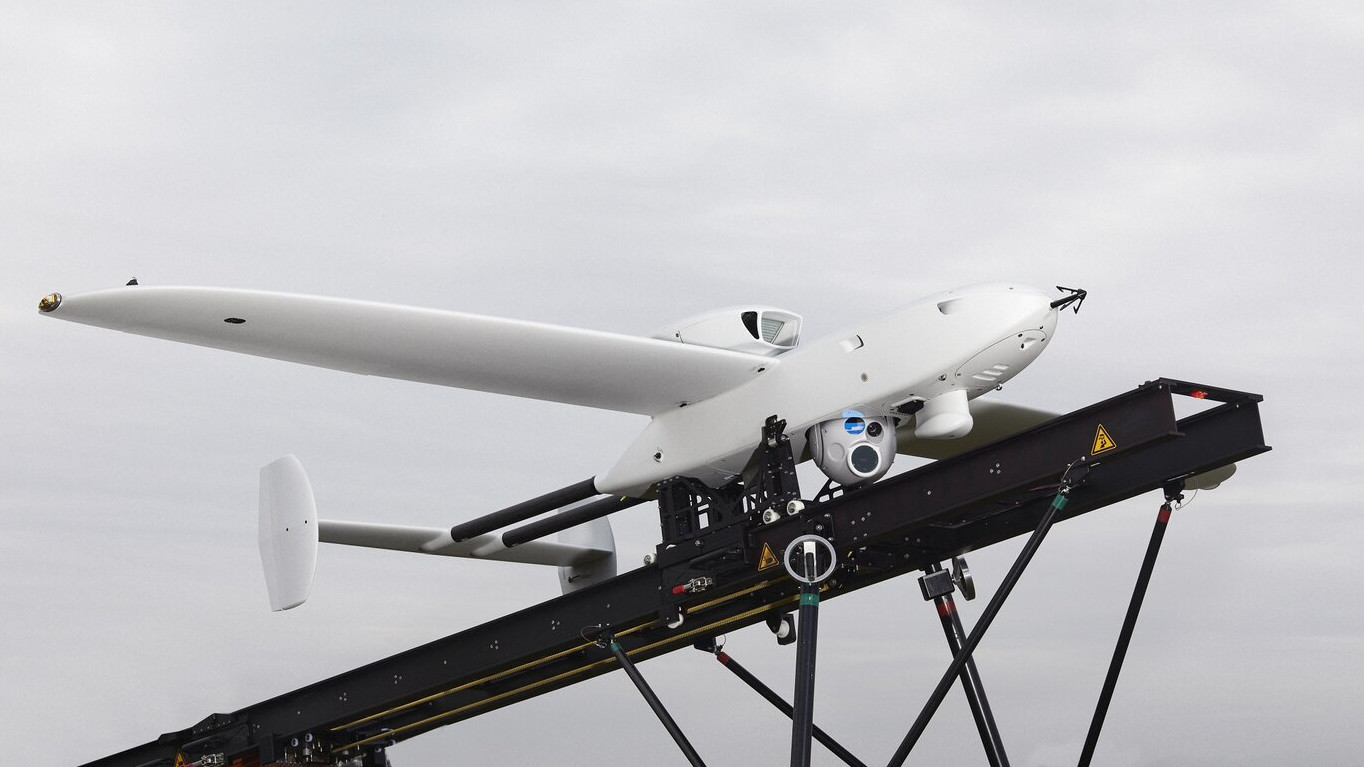Ukraine's drone lessons spur Rheinmetall and US firm to standardize autonomous tech

Germany's largest defense company Rheinmetall is working with US software specialist Auterion to develop unified operating standards for autonomous combat drones. The Swiss-founded tech company has already tested its technology in Ukraine.
Rheinmetall and US software specialist Auterion announced a partnership to develop unified operating standards for autonomous combat drones. According to the company, Rheinmetall's drones will integrate with Auterion's software to create a military-wide system.
"In a general shift from manned to unmanned systems, it is crucial that the autonomous systems can talk to each other," said Auterion co-founder and CEO Lorenz Meier. Rheinmetall's Chief Digital Officer Timo Haas added that deveffloping a uniform operating system will "enable the efficient and scalable deployment of unmanned systems."
Building NATO-wide standards
Auterion is already involved in a US Department of Defense initiative to develop an open-source standard for autonomous systems. The partnership with Rheinmetall aims to advance this approach among NATO allies. According to CEO Meier, joint military operations would be impossible if each NATO country had its own standard for drone communications.
Founded in Switzerland in 2017, Auterion now has its headquarters in the US with offices in Germany and Switzerland. Before Auterion, Meier developed widely-used open-source standards for the UAV industry including PX4, Pixhawk, MavLink, and QGC.
AI chip enables autonomous targeting
The core of Auterion's technology is the Skynode S chip, which is already used in Ukrainian kamikaze drones. The cost-effective chip uses AI capabilities like computer vision to hit targets precisely, even when connection to the operator is disrupted.
In tests, the autonomous drones achieved a 100 percent hit rate, according to Auterion. In comparison, manually controlled drones that lose connection due to electronic countermeasures only hit their targets 20 to 40 percent of the time. However, CEO Meier emphasizes that the goal is not to create fully autonomous killing machines. The level of automation is comparable to "fire and forget" guided missiles, where a human designates the target.
Ukraine pushes drone development
The war in Ukraine has shown the military significance of drones. Ukraine now plans a massive expansion of its drone and robot production. A commander of Ukrainian drone units expects Ukrainian drones could fly fully autonomously within six to eight months. The government has established a three-year plan that includes funding for several million drones per year.
The US is also investing heavily in this technology, particularly with an eye toward potential conflicts with China in the Pacific. The US Army recently signed a contract worth nearly a billion dollars with AeroVironment for Switchblade series kamikaze drones.
AI News Without the Hype – Curated by Humans
As a THE DECODER subscriber, you get ad-free reading, our weekly AI newsletter, the exclusive "AI Radar" Frontier Report 6× per year, access to comments, and our complete archive.
Subscribe nowAI news without the hype
Curated by humans.
- Over 20 percent launch discount.
- Read without distractions – no Google ads.
- Access to comments and community discussions.
- Weekly AI newsletter.
- 6 times a year: “AI Radar” – deep dives on key AI topics.
- Up to 25 % off on KI Pro online events.
- Access to our full ten-year archive.
- Get the latest AI news from The Decoder.